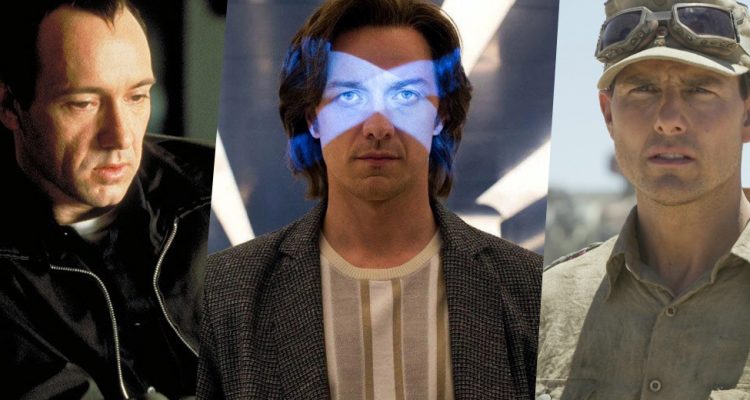The release of “X-Men: Apocalypse” (read our review here) on Friday marks something of a landmark for director Bryan Singer; it’s the helmer’s tenth film since his career got underway 22 years ago. The director won the Sundance Grand Jury Prize with his little-seen first film, “Public Access,” then truly broke out with his second film, “The Usual Suspects,” one of the great cult hits of the 1990s, and by his fourth, “X-Men,” he was within the studio system, and helping to pioneer the current superhero trend (for better or for worse).
READ MORE: Watch: The Four Horsemen Give Mutants Trouble In New Trailer For ‘X-Men: Apocalypse’
He’s a fascinating figure: while some of his contemporaries have stuck to their indie guns or found awards-season acceptance, Singer has been absorbed almost entirely into the mainstream, with four of his ten movies to date being in a single franchise, the “X-Men” movies. But that franchise is one of Hollywood’s longest-running and most successful, and he’s continued to be an unpredictable figure, the quality of his films varying dramatically even within a few years of each other.
To mark the release of “X-Men: Apocalypse” this week, we thought it was time to look over Singer’s career, so we’ve ranked his ten movies to date below. Take a look, and let us know your own thoughts on his career in the comments.

10. “Jack The Giant Slayer” (2013)
Retitled, and delayed almost a full year (after years in development), “Jack The Giant Slayer” is financially the only true disaster of Singer’s career, losing backers a Legendary nine figure sum. It’s also undoubtedly a colossal creative misfire too, not just the worst film that the director ever made (an oddly out of character one, too), but also one of the worst that a major studio released in the last few years, and one that could have been a career-crippler had it not been followed by the bounce-back of a giant X-Men movie. Intended to land among the first wave of fairy tale reboots a la “Snow White & The Huntsman,” “Alice In Wonderland” et al, it’s a reasonably straight-ahead version of “Jack & The Beanstalk,” with Nicholas Hoult as the simple country boys who swaps magic beans for a cow and end up in the kingdom of the giants. The script — by three writers, including Christopher McQuarrie — never finds an interesting twist on the classic tale, but it tries to make up for it by adding a bunch of extraneous time-wasting including an attempted coup by Stanley Tucci and a giant invasion, and weird tonal clashes, just-for-kids fairy tale performance style mixed with some vaguely gross violence. It all feels like everyone involved is entirely going through the motions, Singer especially. The film doesn’t even have any aesthetic value, feeling most like the scenes in “Shrek” that don’t have Shrek in them. A monstrosity that, happily, audiences resoundingly rejected.

9. “Public Access” (1993)
Singer’s 1988 short film “Lion’s Den,” which starred his classmate Ethan Hawke, and was co-directed with future regular collaborator John Ottman, got a then-27-year-old Singer some attention from a Japanese company that financed low-budget films, and they agreed to put the money up for “Public Access,” a film that Singer and pals Christopher McQuarrie and Michael Feit Dougan then wrote in a little over a week. And it… kind of shows. Like Dürrenmatt’s “The Visit” as directed by Hitchcock, the film sees a drifter (Ron Marquette) arrive in a small town called Brewster, where he uses the public access cable station to host a show that lets him stir up drama in the neighborhood. You can see to some degree why the film might have caused a stir when it premiered at Sundance back in 1993: it’s an ambitious film, one that has something to say, and Singer’s talents, even on a relative shoestring, are clear. But the script is something of a mess, overextended at 90 minutes, mistaking obliqueness for profundity, and it’s never quite sure what it wants to do with its set up. The tension that Singer carefully builds up eventually dissipates as if someone left a window open. It had a mixed success: reviews were a little lukewarm, but then the film took the Grand Jury Prize at Sundance (or more accurately, shared it with “Ruby In Paradise”). It then failed to get proper U.S. distribution (it would eventually get a release of a sort after Singer’s next film blew up), but it paved the way for Singer’s next film to become a sensation…

